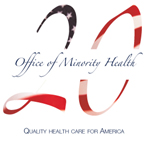Regional Conversations, hosted by the HHS Office of Minority Health (OMH), are designed to address one of the most pressing issues today – the disparity in health care for minority populations.
The existence of health disparities among minority populations is undisputed. The question that confronts us is: what actions can be taken by private and public partners that would improve the effectiveness and efficiency of our collective efforts?
The regional conversations bring together local, State, Tribal, regional, and federal experts and practitioners from the private and public sectors to lay the foundation for a comprehensive, community-driven, sustained approach across the nation.
These meetings are designed to:
- Identify and acknowledge the social, economic, cultural, and behavioral underlying factors and contributors that cause health disparities,
- Examine the intersection of health disparities, health care access, health care programs, and services as causes,
- Identify programs that successfully serve the needs of minority populations within communities,
- Critically examine the role of policy, and both intended and unintended consequences on minority populations,
- Determine “best ways” to address critical gaps among populations and specific diseases, and
- Identify solutions, methods, and programs that will address these gaps, improve the effectiveness of existing programs, and more efficiently apply resources.
The goals for these broad-based, open discussions are to:
- Build a renewed sense of teamwork across communities;
- Share success stories and methods for getting improved results;
- Demonstrate how model programs can be replicated or tailored for greater impact;
- Create methods, tactics, and ideas that support more effective and efficient action;
- Improving existing programs, identifying future priority activities, as well as establishing or strengthening inter- and intra-state partnerships;
- Establish accountability and ownership for action at the regional level; and
- Enhance communication channels.
Pre-Meeting Activities. Before the first conversation in each region, there will be:
- A Tribal Consultation Session with leaders representing Tribes within the regional cluster;
- A Community Roundtable with local leaders to identify community-level priorities and community-inspired solutions; and
- An Academic Alliance Roundtable to explore opportunities for partnerships among leading university, college, and research centers that could advance the translation of research findings into practice.
Invitations are extended based on OMH consultations with various sources. Some 40 – 45 percent will be community-based representatives. Multiple sources for both organization and individual names are being solicited from state health and minority health officials, OMH partnering organizations and OMH grantees. OMH strives to achieve balanced representation.
Prior to the meeting, participants are asked to review state health plans and other materials posted to the NPA website.
Meeting format. Reports from the Community Roundtable, Academic Alliance, and Tribal Consultation meetings are shared with the general plenary session on the first day.
The meeting consists of 2.5 days of facilitated breakout sessions. Participants are assigned to breakout groups. Participants in each break-out session are representative across population, state, diseases, category, etc., to the extent possible. Breakout groups have no more than 35 participants.
Facilitators guide participants through specific topics, explaining the purpose of each session and how information will be used in the final deliverable of the Regional Blueprint.
Note-takers use data collection sheets to gather information, which are shared with participants in each group. General plenary session topics and speakers are aligned to provide information or "inspiration" throughout the meeting.
A nightly debriefing is conducted with facilitators and note-takers to ensure that additional topics or concerns of participants are addressed methodically throughout the meeting and to ensure consistency in approach.
Post Meeting Follow Up. Each of the groups has the opportunity to review and comment on results/documents of primary sections of the Regional Blueprint. Additional groups will be encouraged to review and comment.
Regional Blueprint. The meetings will result in development, dissemination, and implementation of strategic objectives and tactical recommendations known as the Regional Blueprint. We intend to communicate the Blueprint and to provide a structure for continuing discussions through:
- Sustainable, action-oriented teams of experts, advocacy groups, community program leaders, coalition groups, and the media that will collaborate to ensure timely, accurate and effective communications about regional healthcare issues by reducing cultural and linguistic barriers.
- Regional collaborations among researchers, policy-makers, communities, and service delivery systems to examine and shape policies.
- Proactive support of local and regional workshops, programs, health and significant cultural events, and evaluation/communication outreach activities that address the needs of minority populations as they relate to health disparities.
2009 Minority Health Summit. Regional Conversations will culminate in the 2009 Minority Health Summit sponsored by OMH. Each meeting will include a combination of plenary and breakout sessions intended to build a renewed sense of teamwork across communities; share success stories and methods; demonstrate how model programs can be replicated or tailored for greater impact; and create methods, tactics, and ideas that support more effective and efficient action. Results of the Summit will become part of the National Blueprint for Action.
Regional Conversations will take place between October 2007 and December 2008.
The Regional Conversations are by invitation only.
